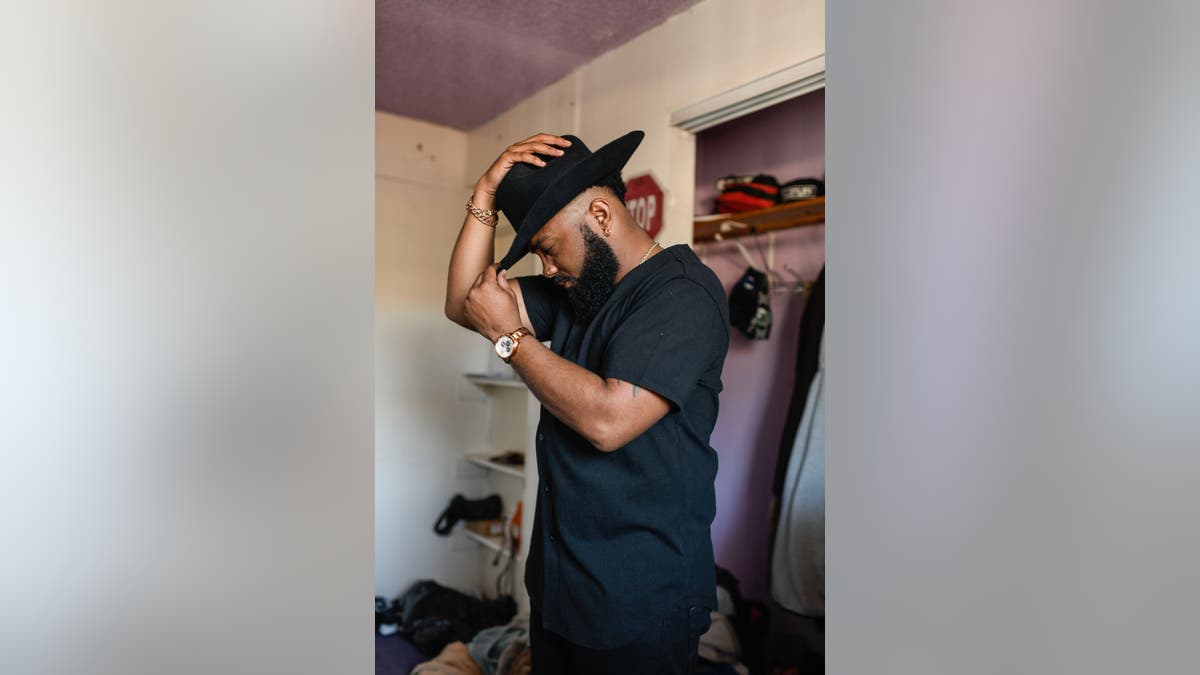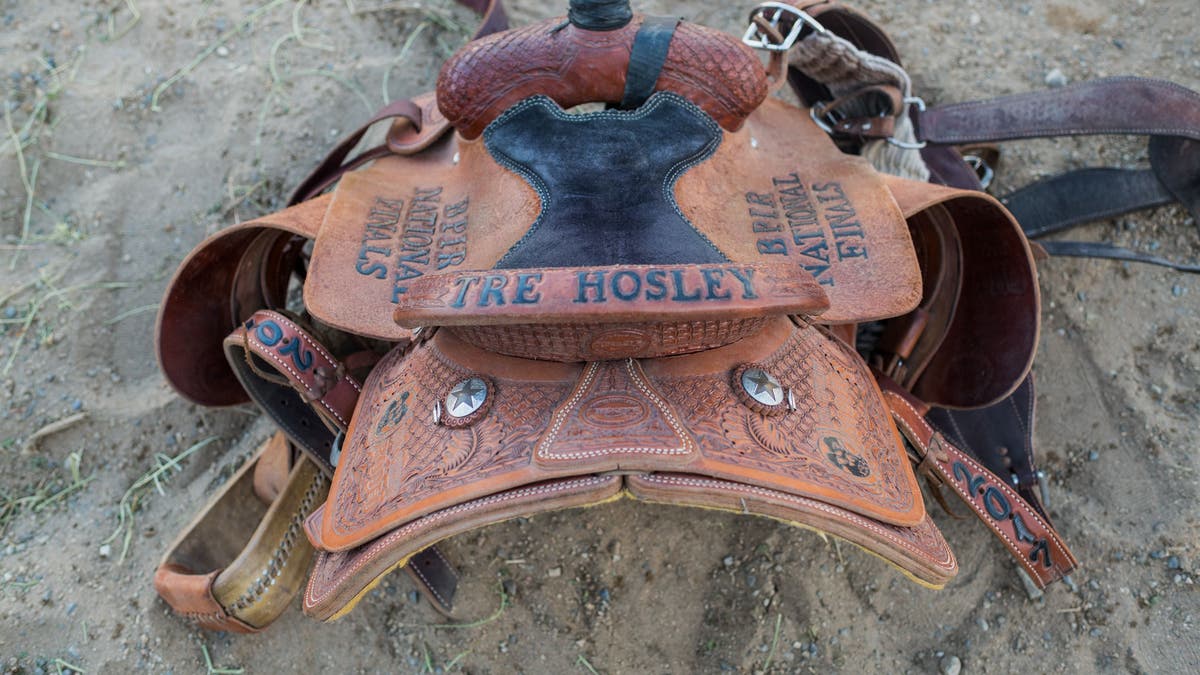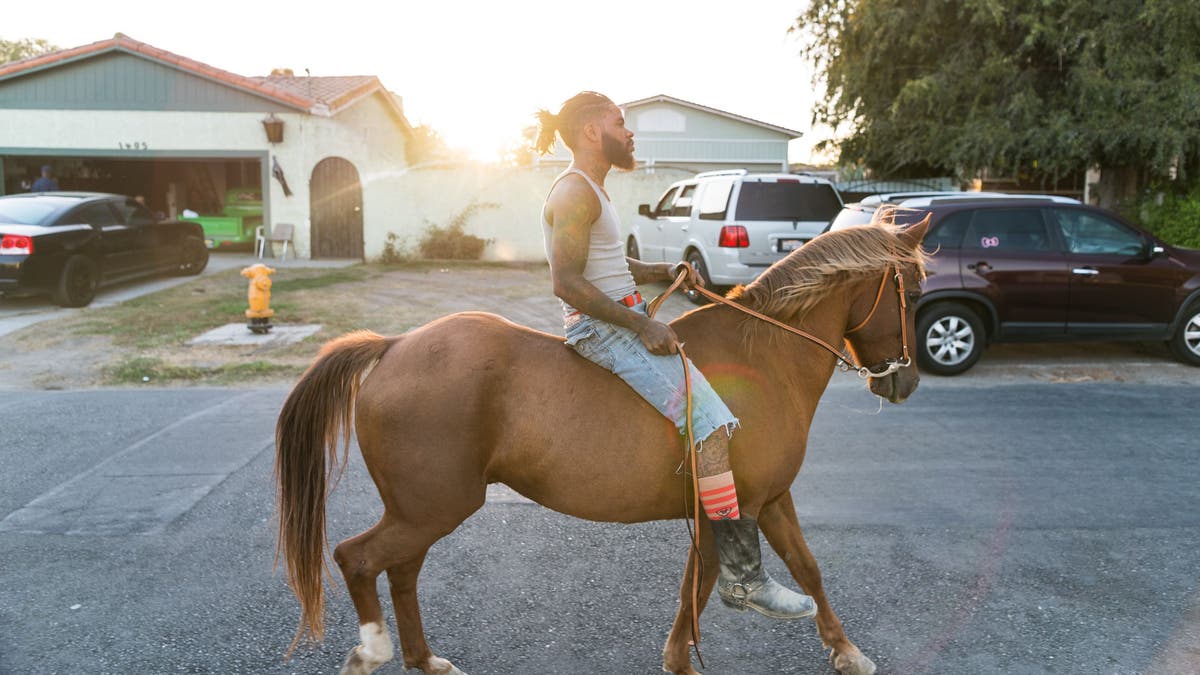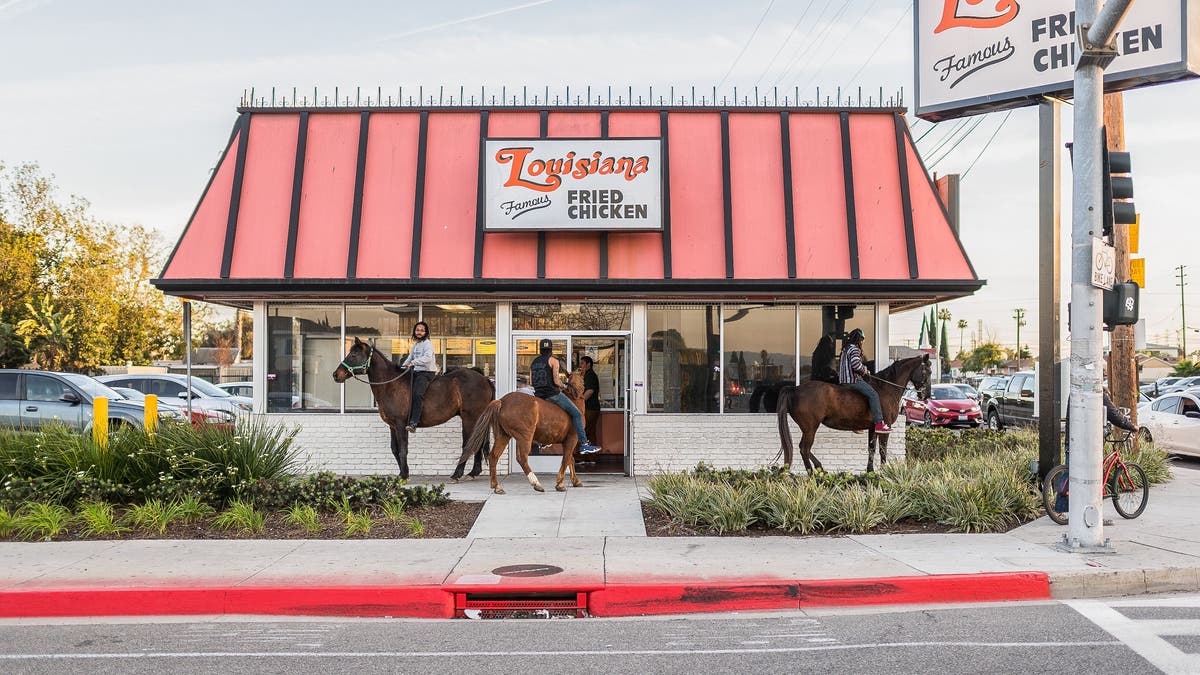The Compton Cowboys, the forgotten history of the African-American rancher
The Compton Cowboys shed light on the power of horses and the forgotten history of the African-American rancher.
The Streets Raised Us. Horses Saved Us.
That's the powerful tagline embodied by the Compton Cowboys, a group of 10 people in the inner pocket of downtown Los Angeles that not only illuminate the art of urban ranching but the often buried history of African-American horsemen.
"We were all born and raised in the inner-city streets; we could have been victims. Our only distinction was that we were able to navigate through it because of the ranch and the horses," Randy Hook, 30, told Fox News. "Instead of hanging out on the corner, instead of going out and doing something stupid, the horses saved our lives as kids."
He continued: "The horses continue to save us every single day our of lives, they allow us to feel open and free, to escape the troubles of the world."

Randy Hook puts on his cowboy hat in his home in the Richland Farms before attending the PBR event in downtown Los Angeles, Calif. (Walter Thompson-Hernández)
The trials and tribulations of Hook, his comrades, and their 15 horses are captured in Walter Thompson-Hernández's new book "The Compton Cowboys," which bucks the prominent portrayals of the semirural L.A. enclave as a hub notorious for gang violence.
Founded in 1988 by local resident Mayisha Akbar, the collective – then called The Compton Jr. Posse – quickly became a haven of equine therapy tailored to support youth and guide them to safe recourse to the streets, as well as to aid those healing from trauma, repatriate men and women after doing time or simply as a window of relief for those enduring abusive or challenging home lives.
FARMERS DUBBED THE 'CARBON COWBOYS' SAY BUSINESS IS BOOMING DURING CORONAVIRUS
In 2017, Hook – who is Akbar's nephew – and his new generation of fellow riders renamed it The Compton Cowboys.

Tre Hosley’s championship saddle. (Credit: Walter Thompson-Hernández)
"For us, the horse is a symbol of peace. That is what it has represented throughout the course of our lives; we're trying to inspire. They are these magical creatures that bring so much light to our day," he continued. "It's peace and love and harmony with the environment. It is a symbol of bravery and courage. To us, horses are about fighting the good fight. They fight on the side of peace."
While the Compton Cowboys are only just now gaining traction in the mainstream media and entertainment spheres, the prevalence of the black cowboy has long been embeded in the American fabric.
According to the Smithsonian, in the early quarter of the 19th century, around 25 percent of the nation's cowboys were black.

Keenan rides through Compton
By 1860 that number had risen to over 30 percent in Texas, where the cowboy way of life really came into its own. While Texas ranchers aided their neighbors in fighting the Civil War, historians say many relied on enslaved people to cultivate their land and cattle herds. Their skills were considered critical to the Texas cattle industry in the years after the conflict had ended.
However, historians have largely pointed the finger at Hollywood for glossing over the African-American cowboy profile as the Western genre burgeoned in the early 20th century.
"Entertainment has always been the way that the masses get a feel for the culture, and the Western film approach essentially whitewashed the entire horseman image," Hook said. "And don't get me wrong, I love John Wayne, and we are partners with the John Wayne Company. But over and over, when you are only seeing that image of Wayne of the Marlboro man, people start to believe that that is the only (image)."
JEFFREY EPSTEIN'S ALLEGED 'SPY' TIES UNDER FRESH SCRUTINY IN NEW BOOK

Carlton Hook, Keenan Abercrombia and Kenneth Atkins. (Walter Thompson-Hernández)
The Compton Cowboys' goal is to now add their experiences to the narrative, as well as bring to life homesteads in urban environments across the globe in a bid to help others stay on a positive path. And while a far cry from rolling green hills and desolate, dusty tracks, Hook underscored that the raising horses in the bustle of Los Angeles come with plenty of upsides.
"There are challenges, but our city neighborhood is quite agricultural. All the residents here are horse folks, and because we are in the city, there are stores and businesses all around, which makes it easy to get the feed and supplies we need regularly and easily," Hook noted.
CLICK HERE TO GET THE FOX NEWS APP

Taking a break. (Walter Thompson-Hernández)
Walter Thompson-Hernández told Fox News the book has been optioned by Searchlight to be made into a feature film. He said he hopes now, through both the written word and the silver screen, the Compton Cowboys will reclaim their place in the passages of history.
"It's timely," he added, referring to the spate of demonstrations and push for change in the aftermath of George Floyd's death last month. "It's an important book about race and belonging and identity, it's a nuanced story, and it is told through the eyes of black cowboys."










































